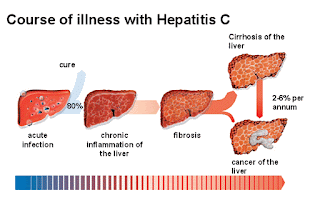Vegetables That Help You Grow Taller
1. Turnips
Turnips are found to be rich in growth hormones and intake of turnips on a regular basis will help in boosting your height. They are normally grown in the temperate regions of the world and are found all over the world. Turnips are rich in vitamins, minerals, fibers, proteins, cholesterol and fat.- You will be able to grow a few inches in height if you add turnips in your daily veggie diet.
- You can either take it in cooked state with other vegetables or add them in some vegetable gravies.
- You also can extract juice out of the turnip and drink them everyday to see visible height gain y a few inches after a few weeks.
2. Bok Choy
The Chinese cabbage or Bok Choy is another vegetable that you can think of including in your daily veggie diet to help in boosting your height.• It is a vegetable that is loaded with minerals, vitamins, dietary fibers and carbohydrates.
• Regular consumption of Bok Choy will help in stimulating the growth hormones of your body and this will in turn help in boosting your height.
3. Beans
Bean is a vegetable that is rich in fiber, folate, proteins, vitamins and carbohydrates. It is considered to be a very nutritional vegetable.• Including boiled beans in your daily vegetable salad or adding it in the vegetarian recipes that you eat will help in stimulating your growth hormones.
• Regular consumption of beans will help in boosting your height as it is loaded with proteins.
4. Rhubarb
Rhubarb is a herbaceous perennial plant that is used in preparing a lot of main dishes and is also taken in as desserts. It is considered to be a fruit in the United States. Rhubarb is an excellent plant that will help your body to fight diabetes. Rhubarb grows from thick and short rhizomes.
• Eating this plant in its raw state or even in cooked state at least three to four times a week will help in stimulating the secretion of your growth hormones in your body.
• Regular consumption will help in increasing your height.
5. Lady’s Finger
Lady’s finger or okra or gumbo is another all important vegetable that will help in increasing your height. It is a flowering plant and is rich in vitamins, fibers, water, carbohydrates and minerals. It is a very nutritional vegetable and forms a part of many Indian dishes. This vegetable is very sticky in nature which performs the function of a laxative.• The nutrients in the lady’s finger will help in stimulating the growth hormones in the body and will help in boosting its functionality.
• This will in turn help in your body to grow vertically.
6. Spinach
Spinach is a green leafy vegetable that will help in increasing the functionality of the body. It is commonly seen and used in many parts of South Asia. It is a rich source of vitamins, iron, fibers and calcium.• Adding spinach in your daily diet will help in proper functioning of the body. It will help in improving the growth of your body vertically by working on the idle growth hormones inside your body.
• You can blend the clean and washed spinach leaves with little bit of water in your mixer and make it into a fine paste.
• You can add some seasoning and a few vegetables to this spinach paste and prepare gravies.
7. Broccoli
Broccoli is another important vegetable that is loaded with healthy vitamins and fibers and is also very good in maintaining the proper functioning of the body. Broccoli belongs to the cabbage family.
- Broccoli is rich in Vitamin C and iron and also has anti- cancer properties as well as is rich in fibers.
- It will help in maintaining a healthy diet and also helps in proper functioning of the body.
- It will help in stimulating the idle growth hormones in your body and thereby help in increasing the height.
8. Brussels Sprouts
Another important vegetable that will help in increasing the height of a person is Brussels sprouts. It belongs to the cabbage family and contains anti-cancer properties. It is a vegetable that is rich in minerals, vitamins, protein, fibers, iron and so on. It has rich sources of anti-cancer properties.
• It would be ideal for you to consume Brussels sprouts in raw state or in semi-cooked state at least three to four times a week so that it stimulates the growth hormones in your body which will also help in increasing body height.


























































